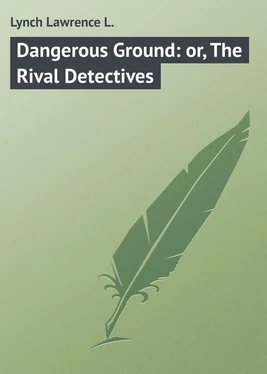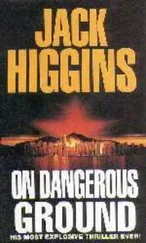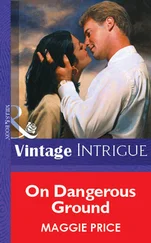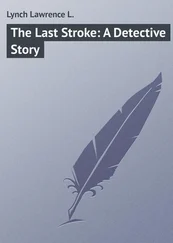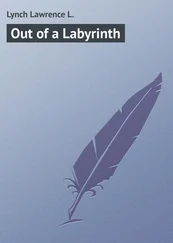Lawrence Lynch - Dangerous Ground - or, The Rival Detectives
Здесь есть возможность читать онлайн «Lawrence Lynch - Dangerous Ground - or, The Rival Detectives» — ознакомительный отрывок электронной книги совершенно бесплатно, а после прочтения отрывка купить полную версию. В некоторых случаях можно слушать аудио, скачать через торрент в формате fb2 и присутствует краткое содержание. Жанр: foreign_prose, на английском языке. Описание произведения, (предисловие) а так же отзывы посетителей доступны на портале библиотеки ЛибКат.
- Название:Dangerous Ground: or, The Rival Detectives
- Автор:
- Жанр:
- Год:неизвестен
- ISBN:нет данных
- Рейтинг книги:4 / 5. Голосов: 1
-
Избранное:Добавить в избранное
- Отзывы:
-
Ваша оценка:
- 80
- 1
- 2
- 3
- 4
- 5
Dangerous Ground: or, The Rival Detectives: краткое содержание, описание и аннотация
Предлагаем к чтению аннотацию, описание, краткое содержание или предисловие (зависит от того, что написал сам автор книги «Dangerous Ground: or, The Rival Detectives»). Если вы не нашли необходимую информацию о книге — напишите в комментариях, мы постараемся отыскать её.
Dangerous Ground: or, The Rival Detectives — читать онлайн ознакомительный отрывок
Ниже представлен текст книги, разбитый по страницам. Система сохранения места последней прочитанной страницы, позволяет с удобством читать онлайн бесплатно книгу «Dangerous Ground: or, The Rival Detectives», без необходимости каждый раз заново искать на чём Вы остановились. Поставьте закладку, и сможете в любой момент перейти на страницу, на которой закончили чтение.
Интервал:
Закладка:
Lynch Lawrence L.
Dangerous Ground; or, The Rival Detectives
PROLOGUE
Time: The month of May. The year, 1859; when the West was new, and the life of the Pioneer difficult and dangerous.
Scene: A tiny belt of timber, not far from the spot where not long before, the Marais des Cygnes massacre awoke the people of south-eastern Kansas, and kindled among them the flames of civil war.
I
It is a night of storm and darkness. Huge trees are bending their might, and branches, strong or slender, are swaying and snapping under a fierce blast from the northward.
Night has closed in, but the ghostly light of a reluctant camp fire reveals a small group of men gathered about its blaze; and back of them, more in the shelter of the timber, a few wagons, – prairie schooners of the staunchest type – from which, now and then, the anxious countenance of a woman, or the eager, curious face of a child, peers out.
There has been rain, and fierce lightning, and loud-rolling thunder; but the clouds are breaking away, the rain has ceased: only the strong gusts of wind remain to make more restless the wakeful travellers, and rob the weary, nervous ones of their much needed sleep.
“Where’s Pearson?” queries a tall, strong man, who speaks as one having authority. “I have not seen him since the storm began.”
“Pearson?” says another, who is crouching over the flickering fire in the effort to light a stubby pipe. “By ginger! I haven’t thought of the fellow; why, he took his blanket and went up yonder,” indicating the direction by a jerk of the short pipe over a brawny shoulder – “before the storm, you know; said he was going to take a doze up there; he took a fancy to the place when we crossed here before.”
“But he has been down since?”
“Hain’t seen him. Good Lord, you don’t suppose the fellow’s been sleepin’ through all this?”
Parks, the captain of the party, stirs uneasily, and turns his face towards the wagons.
“There’s been some fearful lightnin’, sir,” breaks in another of the group. “‘Tain’t likely a man would sleep through all this, but – ”
He stops to stare after Parks, who, with a swift impulsive movement of the right hand, has turned upon his heel, and is moving toward the wagons.
“Mrs. Krutzer,” he calls, halting beside the one most remote from the camp fire.
“What is wanted?” answers a shrill, feminine voice.
“Is the little one with you?”
“Yes.” This time there is a ring of impatience in the voice.
“Have you seen Pearson since the storm?”
“My gracious! No.”
“How is Krutzer?”
“No better; the storm has doubled him up like a snake. Do you want him?”
“Not if he can’t walk.”
“Well he can’t; not a step.”
“Then good-night, Mrs. Krutzer.” And Parks returns to the men at the fire.
“There’s something wrong,” he says, with quiet gravity.
“Pearson has not been near the child since the storm. Get your lanterns, boys; we will go up the hill.”
It is only a slight elevation, with a pyramid of rocks, one or two wide-spreading trees; and a fringe of lesser growth at the summit.
A moment the lanterns flash about, while the men converse in low tones. Then one of them exclaims:
“Here he is! Pearson; Heavens, man, wake up!”
But the still form outstretched upon the water-soaked blanket, and doubly sheltered by the great rocks and bending branches, moves not in response to his call.
They crowd about him, and Walter Parks bends closer and lets the full light of the lantern he carries, fall upon the still face.
“Good God!”
He sinks upon one knee beside the prostrate form; he touches the face, the hands; looks closer yet, and says in a husky voice, as he puts the lantern down:
“He’s dead , boys!”
They cluster about that silent, central figure. One by one they touch it; curiously, reverently, tenderly or timidly, according as their various natures are.
Then a chorus of exclamations, low, fierce, excited.
“How was it?”
“Was he killed?”
“The storm – ”
“More likely, Injuns.”
“No, Bob, it wasn’t Indians,” says Parks mournfully, “for here’s his scalp.”
And he tenderly lays a brown hand upon the abundant locks of his dead comrade, sweeping them back from the forehead with a caressing movement.
Then suddenly, with a sharp exclamation that is almost a shriek, the hand drops to his side; he recoils, he bounds to his feet; then, turning his face to the rocks, he lets the darkness hide the look of unutterable horror that for a moment overspread it, changing at length to an expression of sternness and fixed resolve.
Meantime the others press closer about the dead man, and one of them, taking the place Parks has just vacated, bends down to peer into the still, set face.
“Boys, look!” he cries eagerly; “look here!” and he points to a tiny seared spot just above the left temple. “That’s a burn, and here, just above it, the hair is singed away. It’s lightning, boys.”
Again they peer into the dead face, and utter fresh exclamations of horror. Then Walter Parks, whose emotion they have scarcely noticed, turns toward them and looks closely at the seared spot upon the temple.
“Boys,” he asks, in slow, set tones, “did you, any of you, ever see a man killed by lightning?”
They all stare up at him, and no one answers.
“Because,” he proceeds, after a moment’s silence, “I never saw the effects of a lightning stroke, and don’t feel qualified to judge.”
“It’s lightnin’,” says the man called Bob, in a positive voice; “I’ve never seen a case, but I’ve read of ’em. It’s lightnin’, sure.”
“Of course it is,” breaks in another. “What else can it be? There ain’t an Injun about and besides – ”
A sharp flash of lightning, instantly followed by a loud peal of thunder, interrupts this speech, and, when they can hear his voice, Parks says, quietly:
“I suppose you are right, Menard. Now, let’s take him down to the wagons; quick, the rain is coming again.”
Slowly they move down the hill with their burden, Walter Parks supporting the head and shoulders of the dead. And as they go, one of them says:
“Shall I run ahead and tell the Krutzers?”
“No,” replies Parks, sternly; “we will take him to my wagon. I will inform Mrs. Krutzer.”
So they lay him in the wagon belonging to their leader, and before they leave him there Parks does a strange thing. He takes off the oil-skin cap from his own head and pulls it tight upon the head of the dead man. Then he strides over to the wagon occupied by the Krutzers.
II
A flickering, sputtering candle, lights up the interior of a large canvas-covered wagon. On a narrow pallet across one side of the vehicle, a man tosses and groans, now and then turning his haggard face, and staring, blood-shot eyes, upon a woman who crouches near him, holding upon her knees a child of two summers, who slumbers peacefully through the storm, with its fair baby face upturned to the flickering candle. In the corner, opposite the woman, lies a boy of perhaps ten years, ragged, unkempt, and fast asleep.
A blaze of lightning and a rush of wind cause the man to cry out nervously, and then to exclaim, peevishly:
“Oh, I wish the morning would come; this is horrible!”
“Hush, Krutzer,” says the woman, in a low, hissing whisper; “you act like a fool.”
She bends forward and lays the sleeping child beside the dirty boy in the corner. Then she lifts her head and listens.
“Hush!” she whispers again; “they are astir outside; I hear them talking. Ah! some one is coming.”
Читать дальшеИнтервал:
Закладка:
Похожие книги на «Dangerous Ground: or, The Rival Detectives»
Представляем Вашему вниманию похожие книги на «Dangerous Ground: or, The Rival Detectives» списком для выбора. Мы отобрали схожую по названию и смыслу литературу в надежде предоставить читателям больше вариантов отыскать новые, интересные, ещё непрочитанные произведения.
Обсуждение, отзывы о книге «Dangerous Ground: or, The Rival Detectives» и просто собственные мнения читателей. Оставьте ваши комментарии, напишите, что Вы думаете о произведении, его смысле или главных героях. Укажите что конкретно понравилось, а что нет, и почему Вы так считаете.
